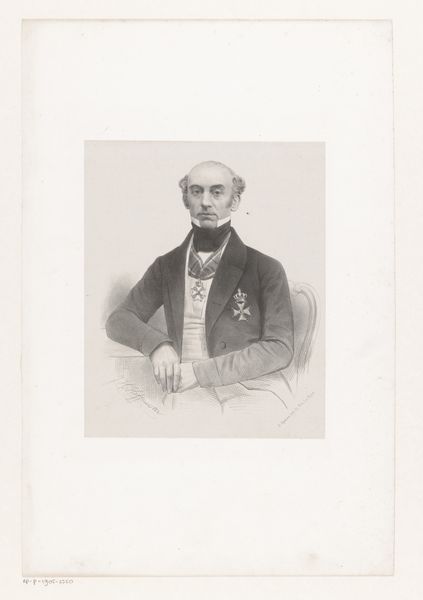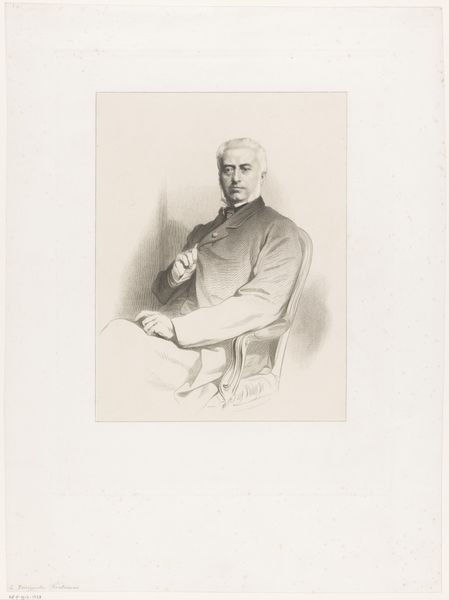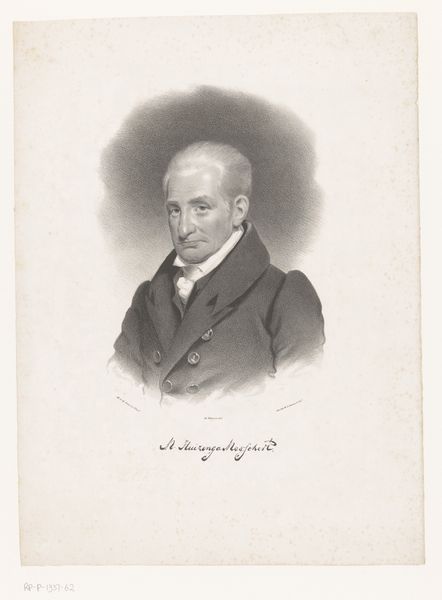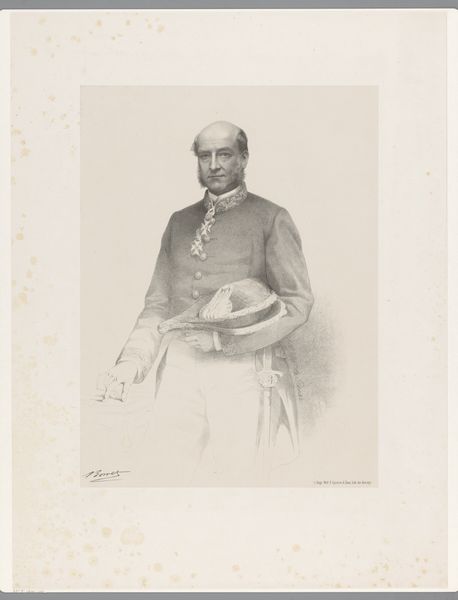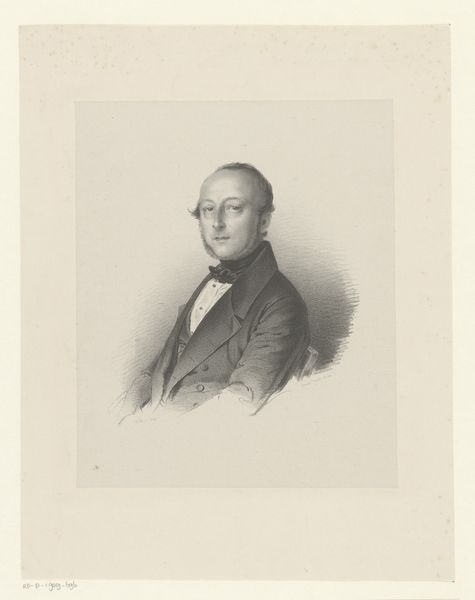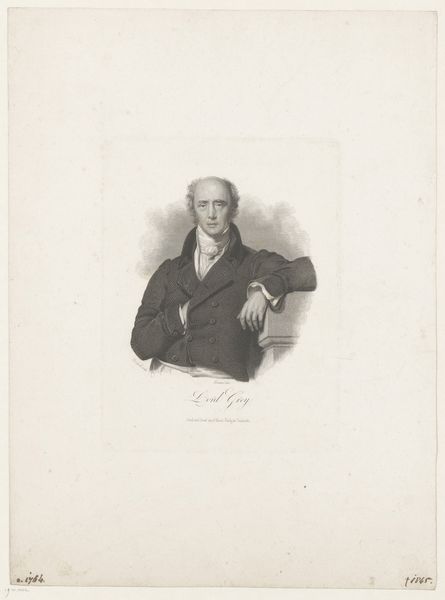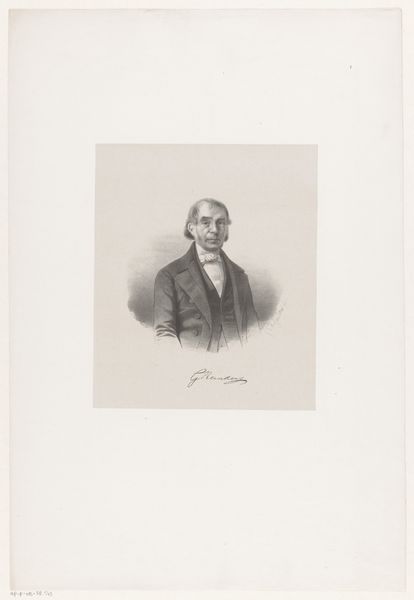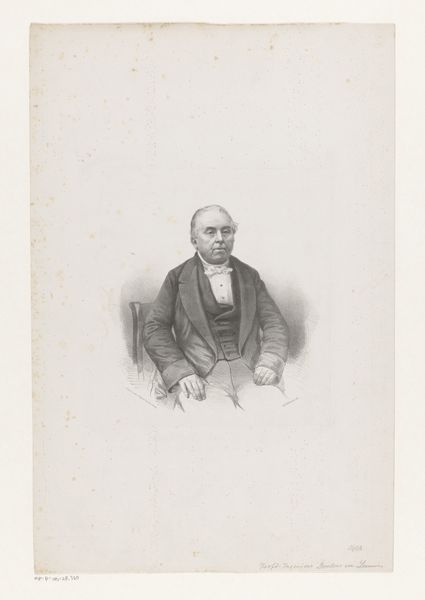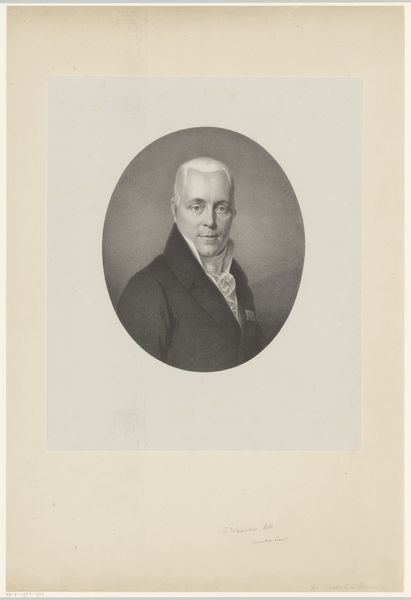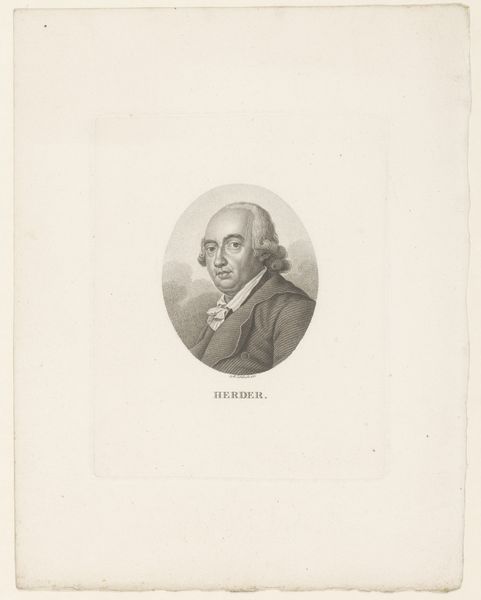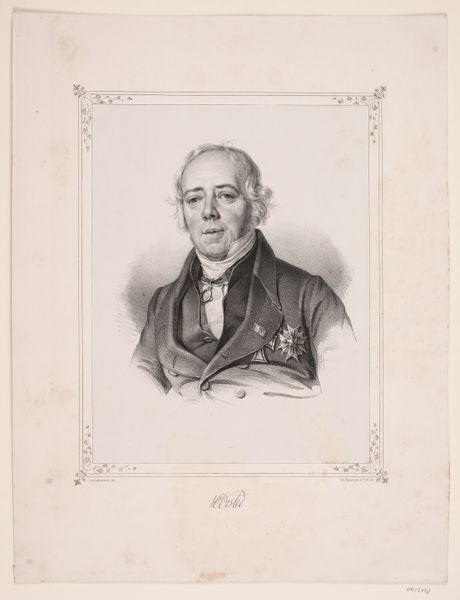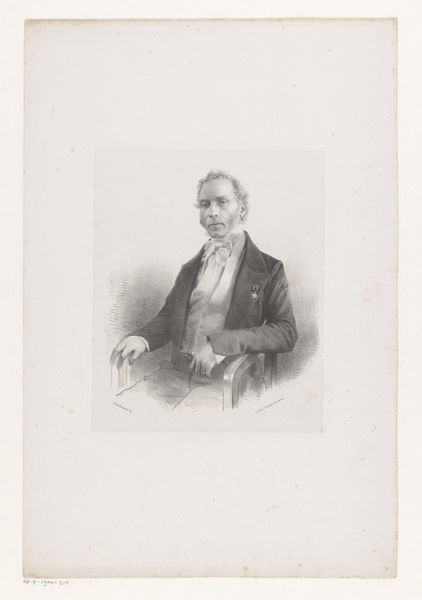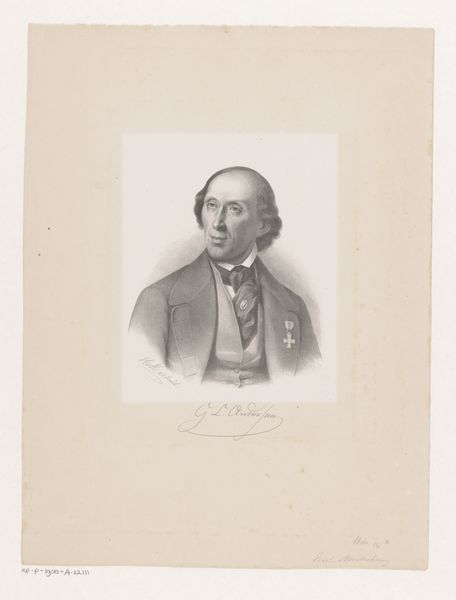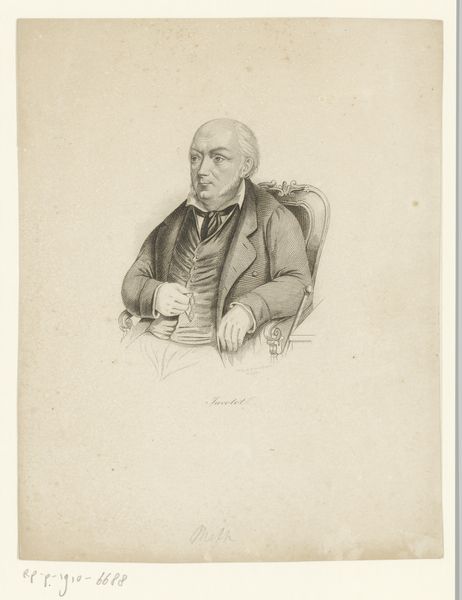
drawing, pencil
#
portrait
#
drawing
#
light pencil work
#
charcoal drawing
#
archive photography
#
pencil drawing
#
pencil
#
realism
Dimensions: height 570 mm, width 415 mm
Copyright: Rijks Museum: Open Domain
This portrait of Herman van Sonsbeeck was created by Louis Tuerlinckx using lithography, a printmaking technique that democratized image production in the 19th century. It’s essentially drawing with grease on a flat stone, then using acid to etch the design, allowing for multiple impressions. The magic of lithography lies in its directness, capturing the artist’s hand and the nuances of light and shadow in the figure's face and clothing. The technique allowed for mass production, but also required skilled hands, linking artistic vision with industrial processes. Note the detail in the background objects - the ornate table, sculpture, and chair. In this context, the work challenges notions of artistic value, blurring lines between art and craft, the unique and the mass-produced. It asks us to consider not just what we see, but how it came to be.
Comments
No comments
Be the first to comment and join the conversation on the ultimate creative platform.
